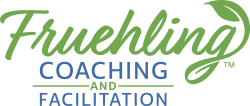“The ultimate touchstone of friendship is not improvement, neither of the self, nor the other. The ultimate touchstone of friendship is witness.”
David Whyte
Anytime I have the opportunity to listen to the poet David Whyte, I take it. He looks deeply at everyday life and finds wonder and meaning there in a way I aspire to, and which I find inspiring.
So, when he was recently a guest on Sam Harris’s podcast to talk about his new book Consolations: The Solace, Nourishment, and Underlying Meaning of Everyday Words, I leashed up the dog for an extra-long walk and put in my headphones. His meditation on the word friendship – from which I quote above – is poignant for me right now.
My daughter will soon graduate high school. Though she has a gap year and college still ahead of her, this rite of passage nonetheless represents her soft launch into adulthood.
What does that mean for our relationship? If a parent is a caregiver of one’s own offspring, how can the relationship evolve when one’s offspring is grown and no longer needs care?
In other words, how do parents and grown children become friends?
From Caregiver to Witness
Let’s define our terms. Though they sometimes overlap – “She’s like a sister to me”; “My brother is one of my best friends” – family and friends are distinct categories. The family relationship is an obligatory bond based on kinship. The friend relationship is a voluntary bond based on mutual affection. Mutual affection is often the result of the caregiving and -receiving of kinship. Thus, the key difference between kinship and friendship is that friendship is voluntary.
This is why David Whyte’s observation resonated so deeply. To become friends with your grown child, you have to give up the notion of improving them – you have to let them stop being your work – and move from caregiver to witness.
What is a witness? Not a detached observer, but one who knows (wit) because she is present and sees. In the context of friendship, I would add, “and believes the best.” “Encourage the best in them,” Whyte continues, “not through critique but through addressing . . . the leading creative edge of their incarnation.”
How do you do that? When you find yourself worrying about them and doubting them, question your judgments. Do The Work.
Corollary
As mutuality is a keystone of friendship, the grown child, too, moves from care receiver to witness.
This involves two key adjustments: take full responsibility for yourself and allow your parents to be vulnerable.
Take Full Responsibility for Yourself. When you find yourself needing caregiving, do not look to your parents. Give it to yourself. Mother yourself; father yourself. That doesn’t mean never requesting or accepting care from others. The shift is in knowing that it’s your responsibility to provide it; no one else’s.
Allow Your Parents to Be Vulnerable. Children need parents to be invulnerable, but friends do not. In fact, friendship is not possible without vulnerability. You must let your parents be fallible, imperfect, even selfish, sometimes, and then forgive them. Forgive them for the ways they fell short when you were their dependent and for the way they fall short now. Whyte says, “Without tolerance and mercy, all friendships die.”
Though high school graduation is a rite of passage, celebrating a change from one phase of life to another, surely the change from parental caregiver to friend is an evolution. The high school years have given me plenty of practice in learning to trust my daughter’s developing judgment while also offering guidance. But it has often felt like a letting go – an absence. Whyte gives me something positive to wrap my empty arms around: friend.





